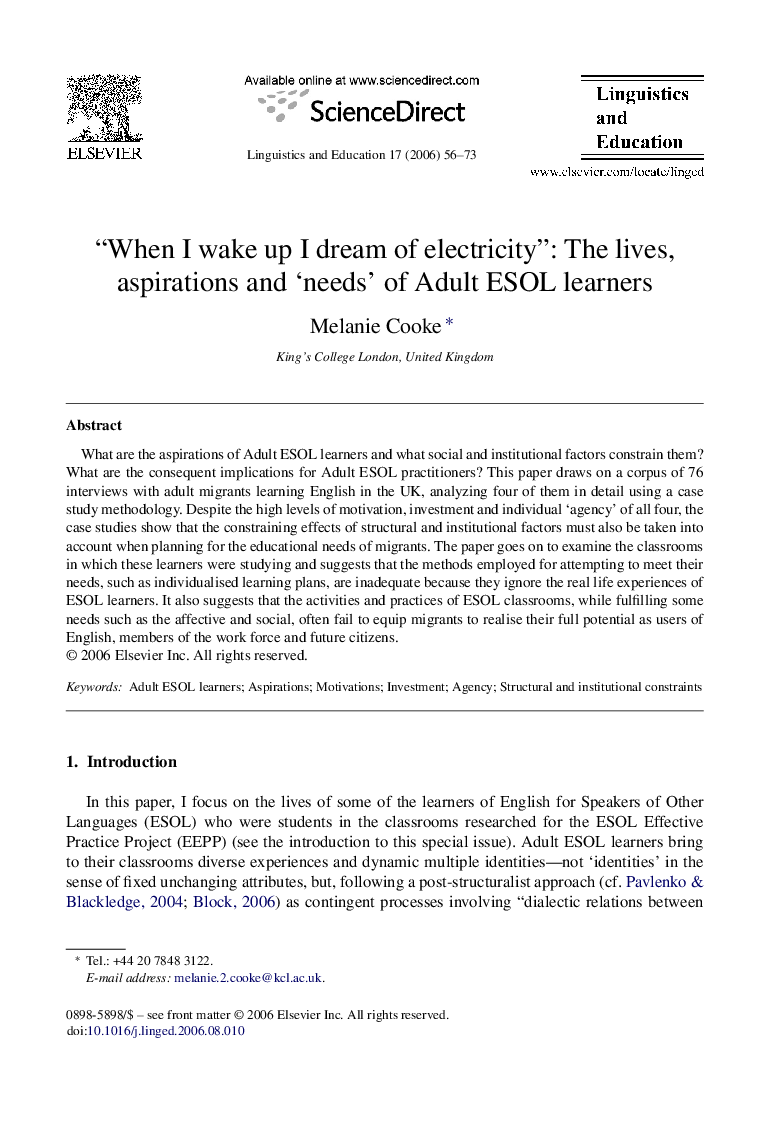| Article ID | Journal | Published Year | Pages | File Type |
|---|---|---|---|---|
| 366422 | Linguistics and Education | 2006 | 18 Pages |
What are the aspirations of Adult ESOL learners and what social and institutional factors constrain them? What are the consequent implications for Adult ESOL practitioners? This paper draws on a corpus of 76 interviews with adult migrants learning English in the UK, analyzing four of them in detail using a case study methodology. Despite the high levels of motivation, investment and individual ‘agency’ of all four, the case studies show that the constraining effects of structural and institutional factors must also be taken into account when planning for the educational needs of migrants. The paper goes on to examine the classrooms in which these learners were studying and suggests that the methods employed for attempting to meet their needs, such as individualised learning plans, are inadequate because they ignore the real life experiences of ESOL learners. It also suggests that the activities and practices of ESOL classrooms, while fulfilling some needs such as the affective and social, often fail to equip migrants to realise their full potential as users of English, members of the work force and future citizens.
